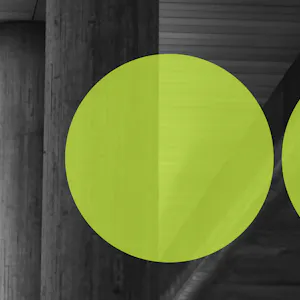Emerging threats

We support organisations striving to build a trustworthy, safe online environment where users can engage authentically in their communities.
Cross-sector corporatesWe support international government organisations and NGOs working to provide infrastructure or improve the capabilities, security and resilience of their nation.
International programmes and developmentWe support commercial organisations operating in a digital world, seeking to protect their reputation and prevent business disruption caused by cyber attacks and compliance breaches.
UK government and public sectorWe support UK government organisations responsible for safeguarding critical infrastructure, preserving public trust, and maintaining national security.



With the summer solstice behind us, we have officially entered hot election summer. Mexico, the European Parliament, Belgium, Bulgaria, France, the United Kingdom, Rwanda, one after the other. No rest for the wicked, the populists and the digital investigators. You may be familiar with hot girl summer, the popular Megan Thee Stallion song which has become a staple of Gen Z slang and attitude towards life. Hot election summer is not all that different: it is loud, on everyone's lips and X feeds, unexpected (like the French snap elections), unapologetic (in that it screws you over if you abstain), and crucially, much of it unfolds on TikTok.
Politicians across the political spectrum have been crying wolf when it comes to social media's impact on elections for years. From Obama's 2008 Facebook boom to Jordan Bardella's 1.7M followers on TikTok, every election cycle brings with it discussions about how new technologies or platforms may affect poll outcomes. Much of the discourse is legitimate. The European Elections, albeit less popular than other cycles, have shown that foreign interference remains a key challenge, with threat actors showing the ability to permeate 28 information environments at once. Other parts of these discussions overstate and exaggerate the issues at hand, and contribute to the misrepresentation of the threats that our information environments face.
Take the snap legislative elections in France. Much of the media coverage of the election focuses on Bardella's rise to stardom on TikTok and his alleged ease and authenticity in front of the camera, especially compared to his counterpart, and sitting Prime Minister, Gabriel Attal. Outlets have also published interesting studies warning that the far-right has done a better job at harnessing platforms such as TikTok, to cultivate their electorate. The frenzy around social media platforms accelerating the decay of our societies and political systems has also pushed some governments to consider more extreme measures. Most recently, in mid-May, the French government banned TikTok in New Caledonia, following unrest and riots. Sources had also reported that the Elysee had considered banning Snapchat too in metropolitan areas, after the shooting of Nahel Merzouk in Nanterre, Paris, and this triggered widespread protests against police brutality. We have yet to see, and possibly we may never be able to quantify whether Monsieur Bardella's 1.7M TikTok followers will translate in the sought-after full majority at the French National Assembly. Several, including Iain Bremmer of Eurasia group, have argued that voters between 18-25, who are most likely to be on TikTok, are also the most likely to not vote and not engage in formal political proceedings. Polls conducted in the European Union ahead of the elections show that albeit a bit dramatic, he may be right. In a survey conducted by Eurobarometer, 64% of respondents between 15 and 30 across the EU reported they were going to vote. However, when asked whether they were familiar with any ways to engage with the EU, only 46% of respondents between 15 and 30 reported they were aware of European Elections.
What the media frenzy seems to have to failed to do thus far, especially in the European and French context, is to situate the rise of TikTok as a vector for political discourse in the country's political context. Clips of a possible future prime minister drinking pastis with his followers cannot beat decades of rising disenfranchisement and detachment from the political system. The myth of the wunderkind that crosses from the banlieues to Matignon in 28 short years and upends the Fifth Republic also ignores the reality of the French political system, which will see Bardella likely locked in a cohabitation with Macron until 2027. If the media cries wolf, they should bark at the right tree.
Hot election summer inevitably turns into sad democracy fall, when governments focus on banning fora to crack down on unrest, instead of threat actors.
More about Protection Group International's Digital Investigations
Our Digital Investigations Analysts combine modern exploitative technology with deep human analytical expertise that covers the social media platforms themselves and the behaviours and the intents of those who use them. Our experienced analyst team have a deep understanding of how various threat groups use social media and follow a three-pronged approach focused on content, behaviour and infrastructure to assess and substantiate threat landscapes.
Disclaimer: Protection Group International does not endorse any of the linked content.

Last week, the WeProtect Global Alliance launched their flagship biennial report, the Global Threat Assessment 2025 (GTA25).

PGI has officially been recognised as an Assured Cyber Advisor by the UK’s most trusted cyber security body, the National Cyber Security Centre (NCSC).

“The question is not whether AI will influence international peace and security, but how we will shape that influence.